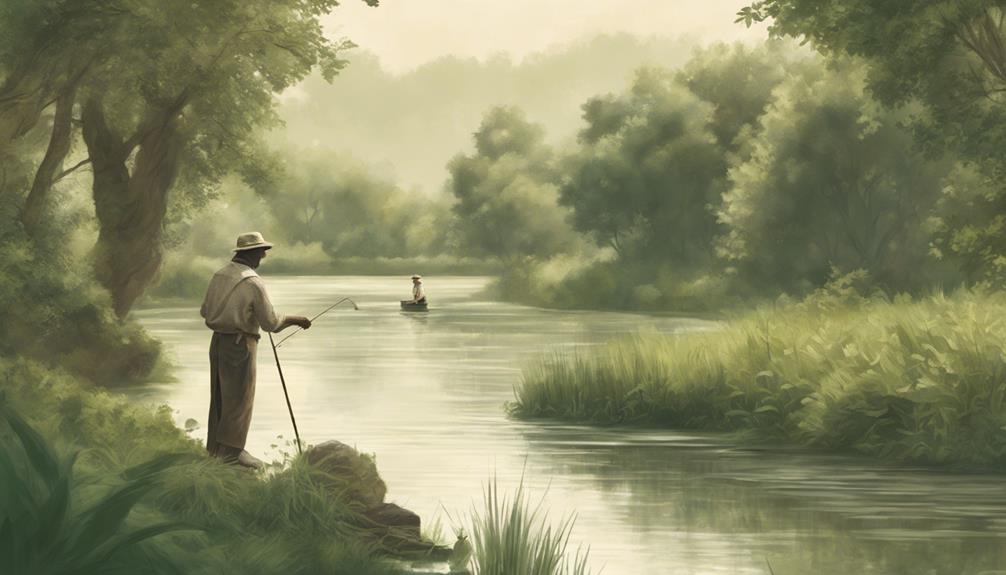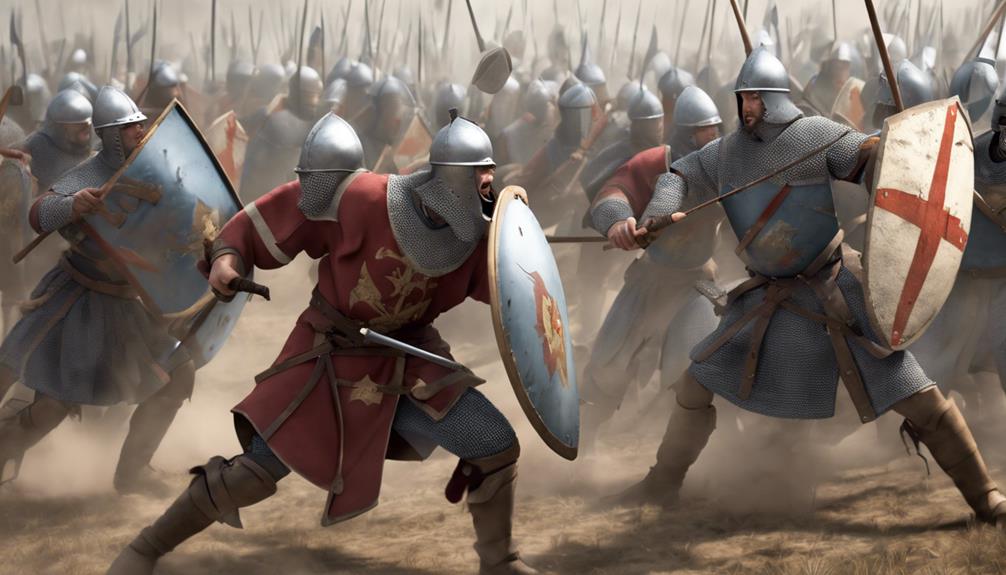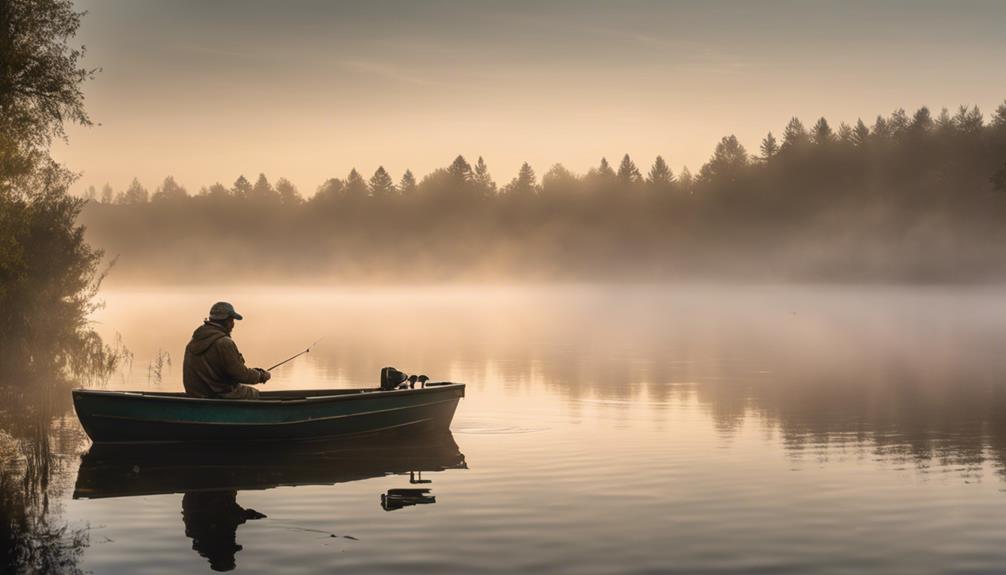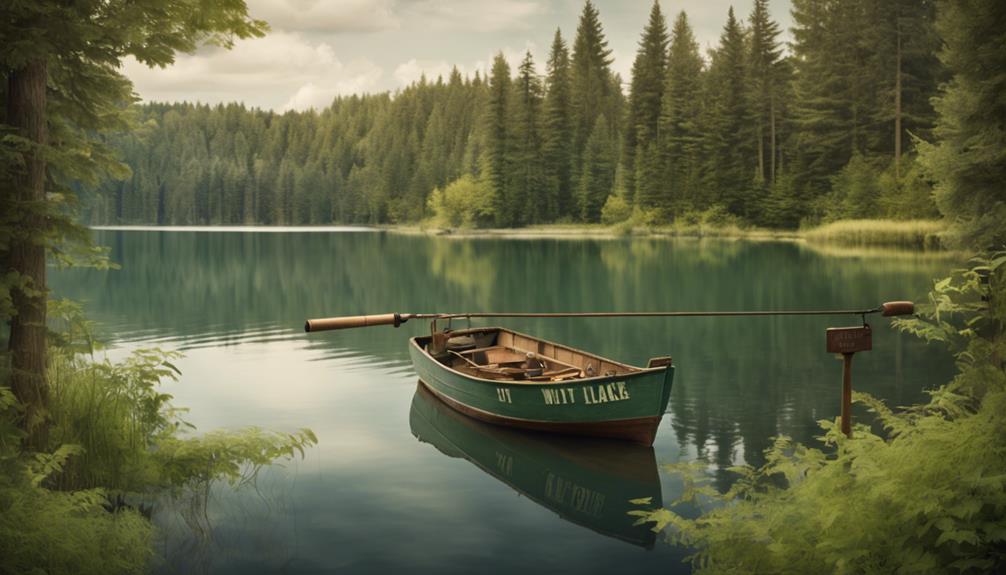Did you know that the ancient Egyptians were among the first civilizations to create detailed records of their fishing expeditions, depicting various techniques and tools used?
From ancient civilizations to the digital age, fishing and angling have evolved significantly over time, each era contributing unique advancements and innovations to the sport.
As you explore the top five eras in fishing history, you will uncover a fascinating journey through time that has shaped the way we fish today.
Ancient Fishing Techniques
Explore how ancient civilizations mastered various fishing techniques to sustain their communities and thrive in challenging environments. Utilizing primitive tools and sustainable practices, these early societies developed indigenous techniques that held deep cultural significance. Fishing wasn't just a means of survival but a way of life, deeply intertwined with their beliefs and traditions.
Ancient civilizations like the Egyptians, Greeks, and Indigenous peoples across the globe utilized a variety of primitive tools such as spears, nets, and traps to catch fish. These tools were crafted from materials readily available in their environments, showcasing their ingenuity and resourcefulness. By employing sustainable practices, they ensured that fish populations remained stable, allowing for continued harvesting without depleting local marine resources.
The fishing techniques developed by these ancient societies weren't merely practical but also held immense cultural significance. In many cultures, fishing was surrounded by rituals, myths, and ceremonies that honored the spirits of the water and the bounty it provided. Fish became symbols of abundance, fertility, and sustenance, with specific fishing methods often being passed down through generations as part of a rich oral tradition.
Through their mastery of ancient fishing techniques, these civilizations not only fed their communities but also fostered a deep connection to the natural world, paving the way for future innovations in angling and fishing practices.
Medieval Angling Innovations
Ancient civilizations' foundational fishing techniques paved the way for innovative angling practices during the medieval era, marking a significant evolution in fishing history. In the medieval period, advancements in fishing gear and techniques revolutionized angling, making it more efficient and widespread.
- Medieval Tackle: During this era, fishing gear became more specialized and diverse. Anglers started using specific tools like hooks, lines, and nets designed for different types of fish and environments.
- Fishing Gear Development: The medieval period saw the refinement of fishing gear materials, with the introduction of stronger lines made from natural fibers like horsehair and silk.
- Angling Techniques: Anglers honed their skills in various fishing strategies, such as fly fishing and bottom fishing, to target specific fish species more effectively.
- Increased Accessibility: As angling gained popularity, fishing became more accessible to people of different social classes, leading to a broader participation in this recreational activity.
These medieval angling innovations laid the groundwork for future advancements in fishing methods, setting the stage for the Renaissance era's further developments.
Renaissance Era Angling Methods
Innovation characterized the Renaissance era angling methods, heralding a new chapter in fishing and angling history. During this period, significant advancements were made in fly fishing techniques, marking a departure from earlier practices. Renaissance fly fishing techniques focused on the use of artificial flies made from materials like feathers and fur, allowing for more precise and delicate presentations to target fish species. These innovations not only improved the effectiveness of angling but also added an artistic element to the sport.
The historical significance of Renaissance fly fishing techniques lies in the refinement of angling as a skillful and nuanced activity. Anglers began to develop specialized flies for different types of fish, leading to a more strategic approach to fishing. As a result, fishing became not just a means of sustenance but a recreational pursuit that required finesse and expertise.
Artistic depictions of Renaissance era angling practices further highlight the cultural impact of these advancements. Paintings and illustrations from the period often showcased anglers in serene natural settings, capturing the essence of the sport as a harmonious interaction between man and nature. These representations helped popularize angling among the aristocracy and commoners alike, cementing its status as a beloved pastime during the Renaissance era.
Industrial Revolution and Fishing
During the Industrial Revolution, fishing practices underwent significant transformations due to technological advancements and shifts in societal structures. As fishing became more industrialized, the way people caught and processed fish changed drastically. Here are some key points to consider:
- Mechanization: The industrial revolution brought about the mechanization of fishing processes. Traditional methods like handlining and gillnetting were replaced by mechanized techniques such as trawling, which allowed for larger catches in a shorter amount of time.
- Steam-powered vessels: The invention of steam-powered boats revolutionized the fishing industry. These vessels could travel further and stay at sea for longer periods, enabling fishermen to reach new fishing grounds and increase their productivity.
- Mass production of fishing gear: During the industrial revolution, there was a significant increase in the mass production of fishing gear. This meant that anglers had access to a wider variety of tools and equipment, making fishing more efficient and accessible.
- Impact on ecosystems: The industrial revolution also had negative consequences for fish populations and marine ecosystems. Overfishing became a significant issue as technological advancements made it easier to deplete fish stocks.
Modern Technologies in Angling
In today's angling practices, modern technologies play a crucial role in enhancing fishing efficiency and precision. Anglers are increasingly turning to eco-friendly gear and adopting conservation practices to minimize their impact on the environment. From biodegradable fishing line to sustainable bait options, there's a growing emphasis on sustainability in angling equipment.
Virtual reality fishing simulations have revolutionized the way anglers train and prepare for their fishing trips. These simulations provide a realistic and immersive experience that allows anglers to practice different techniques and scenarios in a controlled environment. By utilizing virtual reality technology, anglers can improve their skills and increase their chances of success on the water.
Smart fishing gadgets have also become popular among modern anglers. These devices, such as fish finders and underwater cameras, use advanced technology to help anglers locate fish more effectively. By providing real-time data and insights, smart fishing gadgets enable anglers to make informed decisions and adapt their strategies based on changing conditions.
20th Century Angling Advancements
Throughout the 20th century, anglers witnessed significant advancements that transformed the way fishing and angling were approached. The evolution of fishing techniques and equipment during this era paved the way for the modern angling practices we see today.
- Development of Reel Technology: The 20th century saw significant improvements in reel design, with the introduction of spinning reels and baitcasting reels that revolutionized angling methods.
- Advancements in Rod Construction: Anglers benefited from the use of modern materials like fiberglass and graphite in rod construction, enhancing durability and sensitivity.
- Introduction of Artificial Lures: The 20th century marked a shift towards artificial lures as a popular choice for anglers, moving away from live bait and expanding the options available for fishing.
- Influence of Industrialization: The industrial revolution had a profound impact on angling, with mass production making fishing equipment more accessible to a wider audience.
These advancements built upon the foundations laid by 19th-century fly fishing techniques and the traditions of angling in Victorian times. Anglers in the 20th century were able to refine their skills and techniques, exploring new waters and species with greater ease and efficiency. The innovations of this era continue to shape the way we approach fishing today, blending tradition with technology to create a dynamic and engaging sport.
Digital Age Fishing Innovations
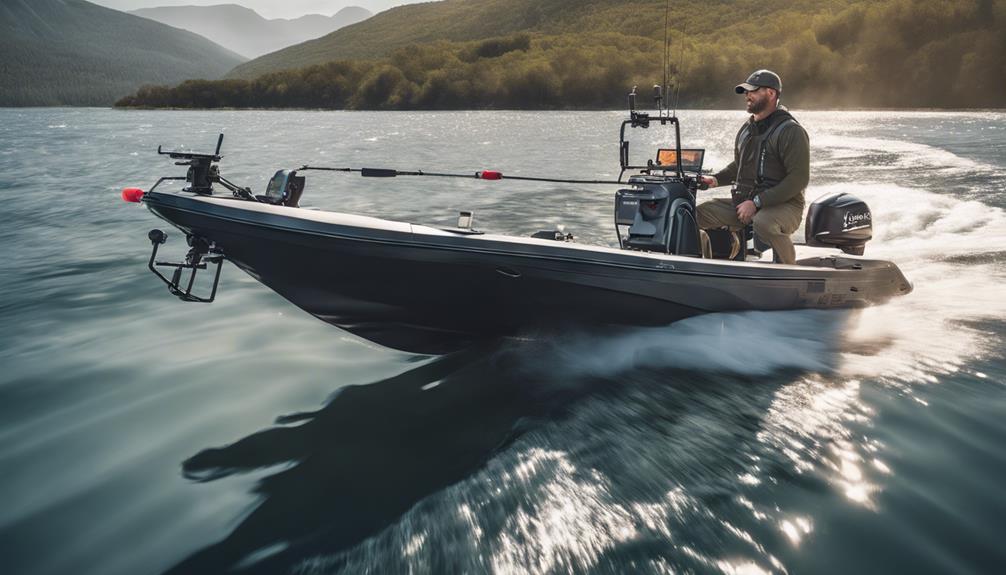
As we step into the digital age, fishing enthusiasts are embracing innovative technologies that are revolutionizing the angling experience. Virtual fishing experiences have become increasingly popular, allowing anglers to enjoy the thrill of fishing from the comfort of their homes through realistic simulations. Online angling communities provide a platform for fishermen to connect, share tips, and discuss their passion for fishing with like-minded individuals from around the world.
Smartphone fishing apps have also transformed the way anglers approach their favorite pastime. These apps offer features such as weather forecasts, tide information, and even GPS mapping to help fishermen locate the best fishing spots. Additionally, technology has made significant strides in fishing gear, with advancements like sonar fish finders, GPS-enabled trolling motors, and high-tech fishing rods and reels enhancing the efficiency and success of fishing trips.
The integration of digital innovations into the world of fishing hasn't only made the sport more accessible and convenient but has also opened up a new realm of possibilities for anglers of all levels. Embracing these technological advancements can undoubtedly enhance your fishing experience and help you hone your angling skills in ways previously unimaginable.
Future Trends in Angling Techniques
Exploring upcoming advancements in angling techniques promises to redefine the way you interact with the sport in the years to come. The future of angling holds exciting developments that will enhance your fishing experience and contribute to the sustainability of this beloved pastime.
- Sustainable Practices: Embracing sustainable practices will become increasingly important in angling. From catch-and-release techniques to using biodegradable fishing gear, anglers will play a crucial role in conserving aquatic ecosystems for future generations.
- Virtual Reality: Virtual reality technology will revolutionize how anglers prepare for their fishing trips. Imagine being able to scout fishing locations, test out different lures, and practice casting techniques in a virtual environment before hitting the water.
- Bio Mimicry: Drawing inspiration from nature, bio mimicry will lead to the development of innovative fishing lures and baits that closely mimic the appearance and movement of natural prey. This approach will enhance your chances of a successful catch.
- Drone Technology: Drones will become indispensable tools for anglers, providing aerial views of fishing spots, monitoring fish activity, and even assisting in bait delivery. Integrating drone technology into angling practices will undoubtedly elevate your fishing adventures to new heights.
Stay tuned for these upcoming trends in angling techniques, as they have the potential to transform the way you enjoy this timeless sport.
Frequently Asked Questions
What Are the Environmental Impacts of Different Eras on Fishing and Angling Practices?
When it comes to the environmental impacts of different eras on fishing and angling practices, it's crucial to prioritize environmental conservation. By adopting sustainable practices, you can help protect our marine ecosystems and ensure the longevity of our favorite pastimes.
Make informed decisions about where and how you fish, respecting catch limits and using proper gear to minimize harm to aquatic life. Your actions can make a real difference in preserving our natural resources for future generations.
How Have Cultural Beliefs and Traditions Influenced Fishing and Angling Throughout History?
Throughout history, cultural traditions have played a significant role in shaping fishing and angling practices. Folklore and beliefs have influenced the way people interact with the environment, emphasizing sustainability and conservation.
These traditions have guided communities in respecting nature and practicing responsible fishing techniques. By honoring cultural values, individuals have contributed to the preservation of aquatic ecosystems and the continuation of these time-honored practices for future generations.
Are There Any Famous Fishing Personalities or Figures From Each Era That Have Significantly Impacted the Sport?
When it comes to famous influencers in fishing, there are several personalities from each era who've significantly impacted the sport. These individuals haven't only popularized modern techniques but also inspired countless anglers through their achievements and innovations.
From historical figures to contemporary icons, their contributions have shaped the way we fish today and continue to influence the sport's evolution.
How Has the Globalization of Fishing and Angling Affected Traditional Practices and Techniques?
Globalization impacts fishing and angling by introducing new gear, technologies, and methods. Traditional techniques may struggle to keep pace with these changes but can also benefit from cross-cultural exchanges.
As different fishing practices blend, there's a chance to create innovative approaches that combine the best of both worlds. Adapting to globalization can enrich the fishing experience, offering new possibilities for anglers to explore diverse techniques and strategies.
What Role Did Women Play in Fishing and Angling During Different Historical Eras?
In the past, women's participation in fishing and angling faced historical barriers, limiting their involvement. Despite these challenges, women have always played a crucial role in shaping the gender dynamics of angling evolution.
Over time, their presence and contributions have become increasingly recognized and valued in the fishing community. As traditional views shift, more women are breaking stereotypes and making significant strides within the sport.
Conclusion
In conclusion, fishing and angling have evolved significantly throughout history, from ancient techniques to modern technologies. Each era has brought new innovations and advancements, shaping the way we fish today.
As we look towards the future, it's exciting to see how technology will continue to enhance the fishing experience and improve conservation efforts.
So grab your gear, hit the water, and enjoy the thrill of angling in all its historical and technological glory.
